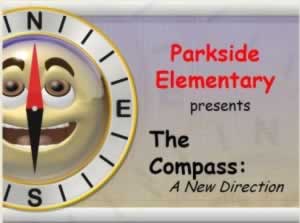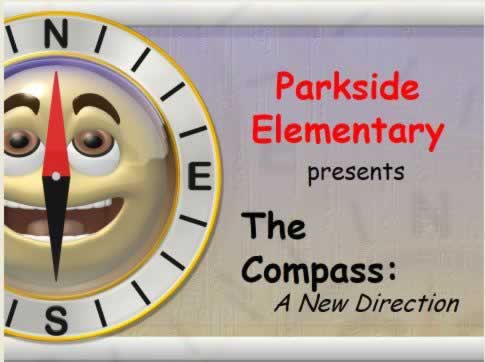Parkside Elementary school’s “The Compass” program uses project-based learning to get students interested in their education
 Two years ago, Kyle was a bored kindergartener at Parkside Elementary school in Coral Springs, Fla. “He wasn’t being challenged enough,” said his mother, Chris Beck.
Two years ago, Kyle was a bored kindergartener at Parkside Elementary school in Coral Springs, Fla. “He wasn’t being challenged enough,” said his mother, Chris Beck.
Then she found out about The Compass, a program created by Parkside teachers Randy Bitton and Sheree Schulson in 2012, which involves project-based learning. Just recently, Compass students paraded around the school parking lot with homemade floats representing different states.
They have also participated in a mock medical conference, built mosaic benches for their garden, and created a sustainable model home using milk jugs.
“What this program does is teach everyone like they’re the gifted child,” Schulson said, adding that this idea is based off of the philosophy of Joseph Renzulli, the director of the National Research Center on the Gifted and Talented.
Project-based learning focuses on interdisciplinary activities that solve real world problems.
Kyle has “flourished” since enrolling in The Compass, Beck said. “He’s come out of his shell and loves going to school.”
(Next page: How The Compass aims to improve learning)
With traditional learning, students memorize information for upcoming tests and don’t retain what is learned, said John Larmer, editor-in-chief of the Buck Institute for Education, a nonprofit that helps teachers use project-based learning.
When students focus on projects, the learning “really sinks in” and it becomes easier to transfer their knowledge to new situations, Larmer said. Eight teachers from grades K-3 at Parkside participate in The Compass. Students often work together and collaborate on projects.
Project-based learning emphasizes 21st century skills such as the ability to think critically, work in teams, and solve problems, Larmer said. Originally, “the school system was designed for the industrial economy. It needed to produce workers for the factory,” he said. But now, in the 21st century, “the United States is in the information age, or knowledge economy, where jobs … are more complicated then they used to be.”
The Compass often partners with community members and organizations for projects. During the program’s first year, which had projects related to the city of Coral Springs, The Compass partnered with a city historian who led the students on a bus ride tour around town, Schulson said.
This year, learning expanded to regions of Florida and ultimately branched out to the United States.
One day, Schulson saw the YouTube music video “Tour the States” and wondered how she could apply it to the classroom. Eventually Schulson and Bitton’s classes created a re-make of the music video.
“The kids loved the song,” Bitton said. “So many of them were downloading it.” Their music video premiered at The Compass’s end-of-the-year showcase, which featured multiple projects from all of the participating classes.
Public project presentations are an important part of project-based learning. Students become more serious about the quality of their work when they have to present it to an audience, Larmer said. The first use of the project approach to teaching was in the early 1900s, Larmer said.
The idea wavered in popularity throughout the 20th century and recently regained traction, as teachers began to realize they could use “creative teaching methods” without having their test scores suffer, he added. Technology has also been responsible for its recent popularity. With all of the technology and information available at students’ fingertips, they are less willing to just sit and listen to a teacher lecture, Larmer said.
Other than using Youtube, Schulson and Bitton also used Pinterest as the inspiration for a project. A homemade “Pinterest board” created from a refrigerator box that had scrolling features and displayed information about Florida’s environmental issues was also on display at The Compass showcase.
“People use Pinterest all the time,” Bitton said, adding that they wanted to show students that the social media outlet could be used as an educational resource. Schulson also used Google Plus Hangouts in her classroom. Every week for one semester, the class connected face-to-face with a Florida home building company representative who explained different stages of the building process through live video call.
“The project took skills learned in school, like measuring, problem solving and persuasive writing, and applied it to real world situations,” Schulson said.
Project-based learning “should be used by every school in America,” Larmer said. Though less than five percent of schools currently use it, Larmer said he has seen a “huge increase” in the last three years. But problem-based learning is not for every teacher, Bitton said.
“It takes a teacher who is willing to get down in the trenches with their students,” Larmer said, adding that they also have to be creative and “willing to let go of some control.”
Molly Schulson is an editorial intern at eCampus News.
- How digital tools and AI can enhance social studies - April 23, 2024
- Using universal screening to improve student well-being - April 22, 2024
- 3 ways to avoid summer learning loss - April 19, 2024


